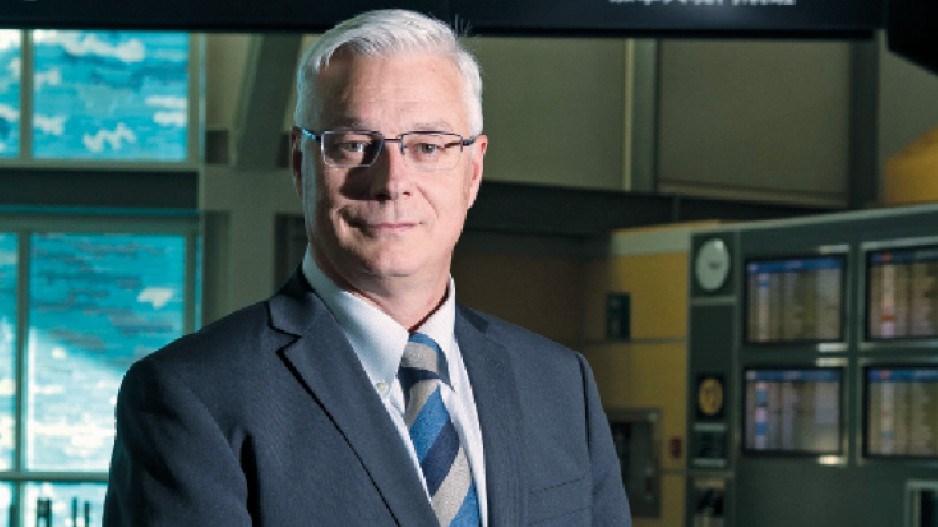Vancouver Airport Authority (VAA) CEO Craig Richmond slammed the federal government’s April 21 budget during his April 22 keynote speech to the Vancouver Board of Trade’s Aviation Forum.
“I feel a bit like a kid who got a lump of coal for Christmas after the budget yesterday because there was nothing in the budget we could find for aviation,” Richmond said. “Maybe just a little for the Canadian Border Services Agency.”
The big transportation news in the budget was the government’s promised $1-billion-a-year permanent fund to boost transit spending and reduce commute times.
Richmond noted that the federal government also promised $50 million in new funding for its automotive innovation fund to enable that fund will have a total of $100 million over five years.
That $50 million roughly correlates with what Richmond’s organization pays the federal government in rent, he said.
Richmond was also disappointed that the federal government, once again, failed to include in the budget a change so that international travellers are allowed to buy duty-free products after they have landed at the Vancouver International Airport (YVR).
He explained to Business in Vancouver after his speech that this policy change has to be included in the budget because it relates to revenue to government.
“In most places in the world, you can buy duty free after you have landed and before you leave the customs area,” he said. “We’ve been trying to do this for 15 years so it is frustrating. We have to go back and find out why it was not there because as far as we know there was no opposition to it.”
One thing that Ottawa announced yesterday related to tourism was a $15.7 million commitment to streamline travel to Canada by low-risk travellers from Bulgaria, Romania, Mexico and Brazil.
“It’s probably not huge that [travel restrictions related to travellers from] Bulgaria and Romania are lifted,” he said. “It’s nothing against those countries but I don’t think there’s huge demand but we’ll check.”
Richmond was more positive about the impact of fewer restrictions placed on travellers from Mexico and Brazil.
Separate from the budget, Richmond has yet to find satisfaction from the federal government on the issue of a travel-without-visa (TWV) program.
That program, which Richmond has lobbied hard for since being appointed VAA’s CEO in the summer of 2013 , would make it possible for Asian travellers, for example, to land in Vancouver, wait in a lounge area with shops and services and then board a separate flight to Central America or South America. All of that would take place without having to get a Canadian visa or to go through Canadian customs.
He optimistically predicted in October that the federal government would agree to such a program “in the month or so.”
He still expects to eventually see the program be approved despite about five federal departments being involved. If such a program is not approved, other cities, such as Dallas or Seattle, could snag the title of being North America’s gateway to Asia.
Business in Vancouver asked Tourism Minister Maxime Bernier about the program earlier this month whether he supported the TWV program and he was generally supportive of the initiative. Despite it being before noon on April Fools Day, Bernier sounded sincere.
Bernier did note, however, that the initiative was mostly outside his jurisdiction and was largely a matter for departments such as Transport Canada and Citizenship and Immigration Canada.
“A lot of people in Ottawa view the world as a scary place instead of an opportunity,” Richmond said to explain why the delay may be happening.
He stressed that he understands the need for borders to be secure but that “most people just want to travel.”
The major push behind the initiative is that it would be a boon for the Vancouver economy.




